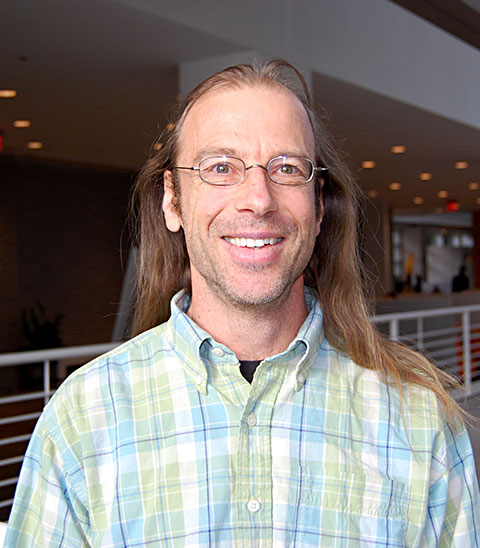Ewan Plant, PhD, Research Biologist and Reviewer
"I stay at FDA because I like the diversity of work and the people I interact with … My laboratory research draws on my inquisitive nature and problem-solving abilities while my regulatory work requires careful evaluation of submissions and teamwork to ensure the safety and efficacy of biologics that save people’s lives ."
Dr. Ewan Plant, Research Biologist, Reviewer, Center for Biologics Evaluation and Research
Q: What opportunities does FDA offer you that you couldn’t get elsewhere?
Ewan Plant: Working at FDA as a research biologist and reviewer provides a broad perspective of the landscape of biological research unlike any other. We interact with many different groups that add to the picture: academics with novel ideas for new biologics and state-of-the-art methods; international pharmaceutical companies conducting clinical trials; sister agencies like the Centers for Disease Control; and other entities like the Biomedical Advanced Research and Development Authority, which link the different sectors.
Q: Why do scientists like you stay at FDA?
EP: I stay at FDA because I like the diversity of work and the people I interact with. I have distinct research and regulatory functions in my job at FDA’s Center for Biologics Evaluation and Research. While both parts of my job primarily focus on influenza and vaccination, each provides different challenges. My laboratory research draws on my inquisitive nature and problem-solving abilities while my regulatory work requires careful evaluation of submissions and teamwork to ensure the safety and efficacy of biologics that save people’s lives. The people here at FDA bring so many different perspectives because of their diverse educational and vocational backgrounds that conversations are always interesting.
Q: How do you use your science degree at FDA?
EP: I studied biochemistry at the University of Otago in New Zealand, where my thesis focused on mobile genetic elements in an asexual yeast system. To work with this challenging system required an inquisitiveness about unknown things and the ability to work out ways to answer questions. Often, knowledge of one facet of science is reflected in another; some genetic elements are like viruses, methods to track genetic markers are similar across model systems. Because of this, I have been able to apply my skills to different projects as I have navigated my career path. Although tools and methods may change, being inquisitive and able to use those tools and methods to solve problems is what science is all about.
Q: How is science conducted at FDA unique from science conducted at the National Institutes of Health, academia, or industry?
EP: Science at FDA fills a niche between industry and academia. While academic investigations can follow the most interesting path with the thrill of novel discoveries the prime motivation, work in industry has to stay in line with the stakeholder requirements of a marketable healthcare product. Work at FDA needs to be in the interest of our greatest stakeholder, the public. Biological systems are incredibly complex and our understanding of them is continually being refined. Our work at FDA provides insight and better understanding of biological systems. Not only do we investigate gaps in knowledge, we also explore new methodologies to assess them. We also collaborate with scientists in other agencies both in the United States and abroad.


